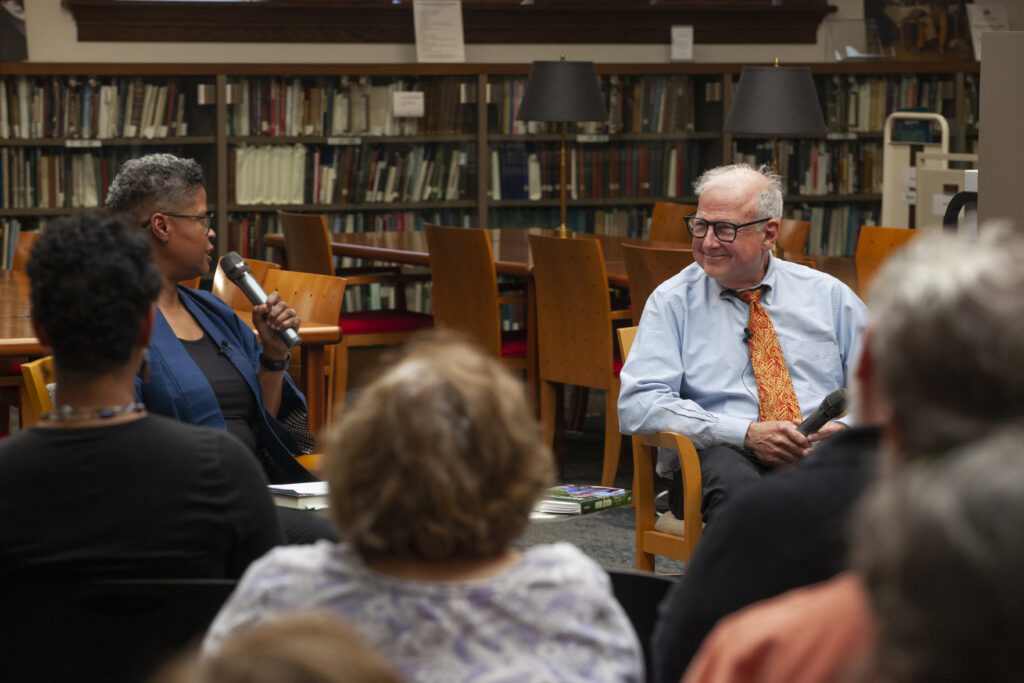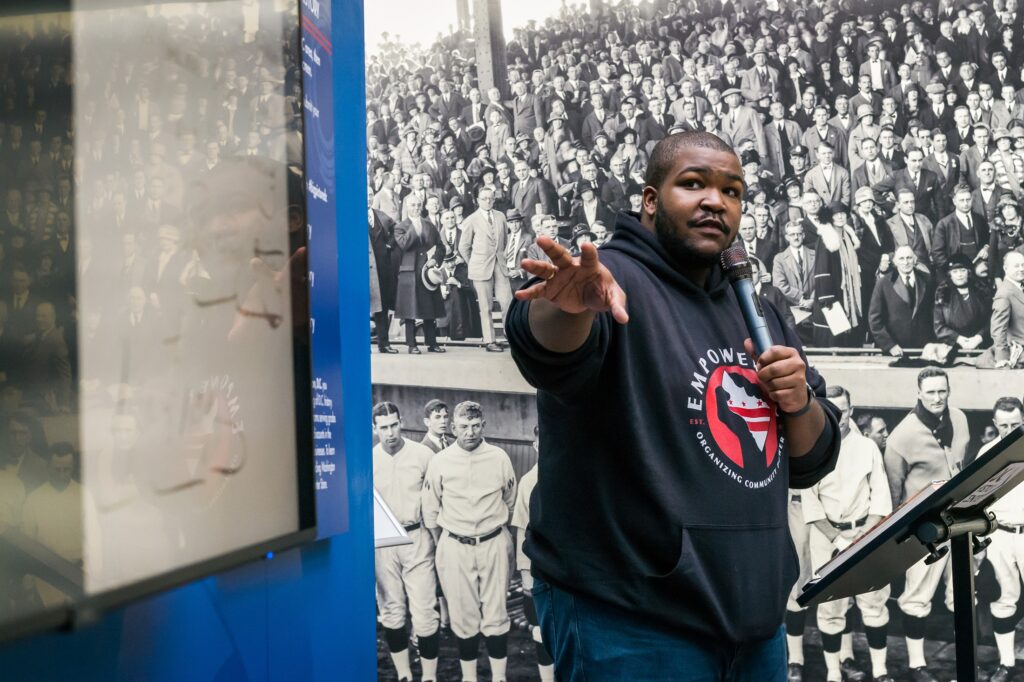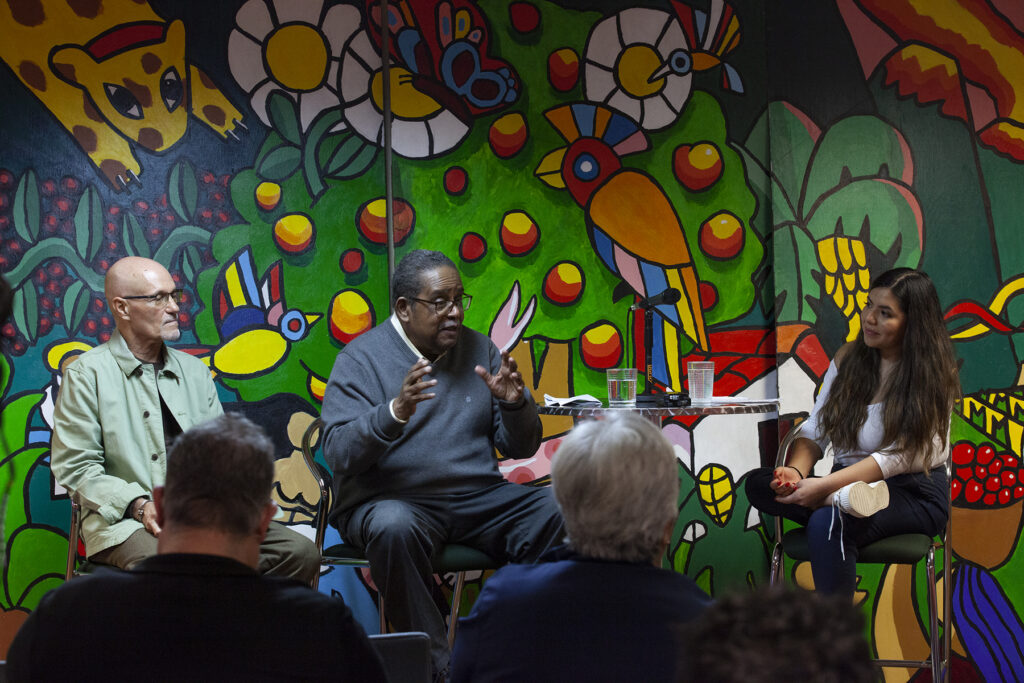“Pay me what you owe me.”
—Rihanna
It’s always been my belief that people should be paid for their time and expertise—period. At the DC History Center, our program strategy is to bring in subject experts to educate our public audiences during tours, book talks, panels, and lectures. As senior manager of programs, I’m not researching and writing a script for a walking tour: I’m working with a professional guide who has researched, written, prepped, and practiced to deliver a first-rate tour. Or when we offer a Context for Today program, we work with a historian to build the program with us. Together, we decide what themes we cover, what questions we ask, and what sources we provide.

Previously, the DC History Center and organizations like ours would have relied on this labor to be free or tried to produce the content ourselves. Instead, we now account for the cost of expertise when budgeting, and we pay our collaborators for supporting our work. As of fall 2024, our standard honorarium for one-time, 60-120 minute programs (think Context for Today, book talks, etc.) is $250.
In 2023, 13 of 21 programs (that’s 62%) relied on paid, outside experts. Through this process, we’ve had open and honest dialogue with our speakers which helped us become more thoughtful partners. Until 2022, we didn’t pay an honorarium to authors for book talks because we expected that book sales during the program would generate income for the author. But when a recently published scholar spoke with me about the unprofitable reality of academic publishing, we changed our practice and started offering both the moderator and author $250 honoraria.

The rule of a $250 honorarium at our organization has its exceptions. Sometimes, our collaboration with a partner is smaller, pop-up programs like On the Square where the program is as brief as 30 minutes. In those cases, we pay closer to $100-150. Whether we’re offering a $100 or $250 honoraria, we share that information up front with the invited speaker so they’re making an informed decision.
Another gray area is the difference in types of speakers we host. There’s an equity issue at hand when you compare a tenured, salaried professor’s ability to sit on a panel for free or a low honorarium versus, for example, a freelance genealogist. The value of the expertise isn’t inherently different. What IS different, is the positionality of the individuals, the stability of their work, and whether they rely on income from this type of program to sustain their livelihood or if it’s bonus income—a side gig or a little extra cash that month. In some instances, the content expert we work with might charge a fee for service, based on their own rates. Admittedly, this means we have to anticipate and budget for that kind of expenditure—something we learned to be more thoughtful about over the last year.
An additional pay structure we’ve introduced is a stipend model used with our advisory groups (including the Latinx Advisory Group and University Advisory Group). At the DC History Center, we offer stipends instead of honoraria when it is a sustained engagement, paid as a lump sum or in installments depending on the size.
How We Budget for Honoraria
Each year, we build honoraria into our organizational budget. As the program manager, I oversee the program-based honoraria and make an estimation based on a ballpark number of programs. Those funds are then within my budget to make decisions about programming. If we don’t have the budget for honoraria, it might not be the right program for us. Occasionally, our speakers decline payment for a number of reasons from personal to professional.
Some institutions, especially in the government, have policies that prohibit their employees from accepting honoraria. This can be awkward, so it never hurts to offer, as it’s their responsibility to say no. Additionally, sometimes our organization’s board members are content experts in their field or make an outstanding moderator. In those cases, we offer the honoraria as a matter of course, clarifying that there is the option to donate it back to the DC History Center, or decline altogether just to skip the paperwork.

The tricky thing about honoraria is that we don’t intend for this to be a valuation of an expert’s time, labor, and expertise. The goal instead is to find a way to recognize an individual’s volunteer effort, which helps us build a relationship and show goodwill. Driven by popular discourse in the last five years, we’ve been more mindful in our own practice about fair and equitable compensation: from salaried workers to contractors, interns, and one-time speakers.
While talking about money is hard, it is essential to building a justice-oriented organization. The honoraria system is not perfect, but it is a useful tool for small nonprofits like ours. Providing honoraria sets a standard in our field for pay equity while offering high-caliber programs with leading experts on DC history.
Have something you want to share about nonprofits and honoraria? Email us at programs@dchistory.org. We improve our practice through collaboration and thoughtful feedback, and we’re grateful to you for taking the time to share!
 Maren Orchard is the senior manager of programs at the DC History Center, joining the organization in 2021. As a community-oriented public historian with a focus on DC history, Maren brings a demonstrated commitment to collaborative program building and a skill in project management. Hailing from Muncie, Indiana, Maren holds a master’s degree in public history from American University, and a BA from Ball State University, where she majored in public history and gender studies. She is proud resident of Bloomingdale.
Maren Orchard is the senior manager of programs at the DC History Center, joining the organization in 2021. As a community-oriented public historian with a focus on DC history, Maren brings a demonstrated commitment to collaborative program building and a skill in project management. Hailing from Muncie, Indiana, Maren holds a master’s degree in public history from American University, and a BA from Ball State University, where she majored in public history and gender studies. She is proud resident of Bloomingdale.